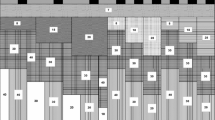Abstract
Laboratory models for fatigue cracking and permanent deformation growth are validated using the response and performance measured from asphalt pavements with different air void contents under the third scale Model Mobile Loading Simulator (MMLS3). The fatigue life prediction algorithm is developed based on a cumulative damage concept and the algorithm for permanent deformation prediction involves a sub-layering method, dividing a pavement layer into several artificial layers for analysis. These algorithms account for the effects of applied loading rate and temperature variation along the pavement depth. The difference in loading frequencies between the laboratory experiments and the MMLS3 test was taken care of using the time-temperature superposition principle with growing damage. The proposed methodology is found to be reasonable in predicting fatigue life and permanent deformation growth in the MMLS3 tests. It is found that the resulted alliance among the accelerated pavement test, laboratory test, and performance models could serve as a foundation for the successful estimation of pavements’ service life in the future.
Similar content being viewed by others
References
AASHTO (2004).Design of New and Rehabilitated Pavement Structures, NCHRP Project 1-37A, American Association of State Highway and Transportation Officials.
Chehab, G.R., Kim, Y.R., Schapery, R.A., Witczak, M.W., and Bonquist, R. (2003). “Characterization of asphalt concrete in uniaxial tension using a viscoelastoplastic continuum damage model,”Asphalt Paving Technology: Association of Asphalt Paving Technologists-Proceedings of the Technical Sessions, Vol. 72, pp. 315–355.
Kim, N. (1994).Development of Performance Prediction Models for Asphalt Concrete Layers, Ph.D. dissertation, North Carolina State Univerity, Releigh, NC.
Lee, S.J. and Kim, Y.R. (2004). “Fatigue investigation of laboratory asphalt pavement using the third scale model mobile loading simulator,”Proceedings of the 5 th International RILEM Conference on Cracking in Pavements, Limoges, France.
Miner, M.A. (1945). “Cumulative damage in fatigue,”Transaction of the ASME, Vol. 67, pp. A159-A164.
Author information
Authors and Affiliations
Corresponding author
Rights and permissions
About this article
Cite this article
Lee, S., Seo, Y. & Kim, Y.R. Experimental validation of laboratory performance models using the third scale accelerated pavement testing. KSCE J Civ Eng 10, 9–14 (2006). https://doi.org/10.1007/BF02829299
Received:
Accepted:
Issue Date:
DOI: https://doi.org/10.1007/BF02829299




